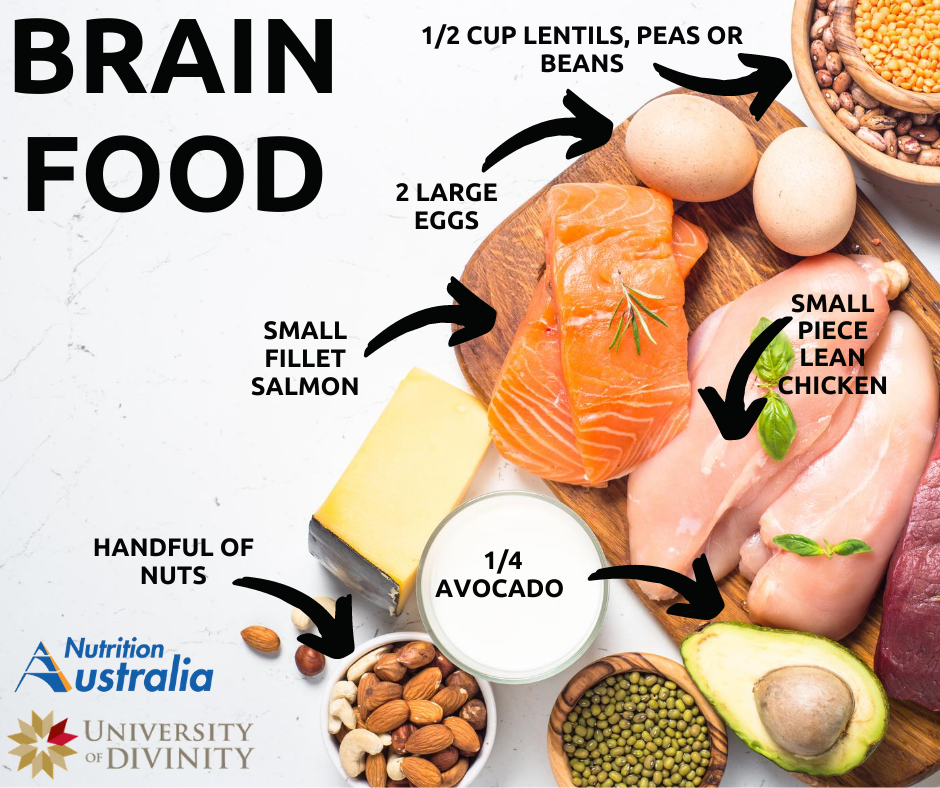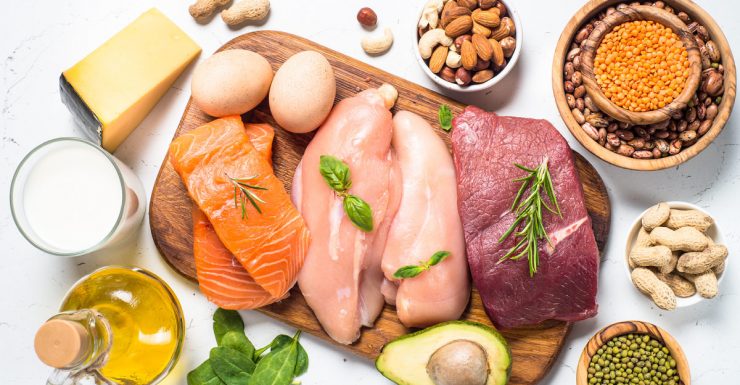We all know a balanced diet is important for our health. We’re told it makes us fit and healthy, can help decrease our chance of getting certain diseases (particularly those related to being overweight and obesity), and that eating a balanced meal can positively impact how we feel. But did you know what you eat can also impact your academic performance?
There is growing research surrounding university students and the effect of diet on their focus, concentration and learning ability. A 2016 literature review1 found diets high in healthy fats, particularly fish and olive oil were associated with better academic performance in university students. The review also noted a better performance for students who ate high amounts of fruit and vegetables compared to those that had low intake.
Why exactly does our food help us think and perform better academically?
Diet has many affects on our brain. Our body breaks down all the food we consume and makes use of it in the body. When we eat the right foods, our body can break it down into useful components that can then be used to help our brain function optimally. Looking at specifics, foods that contain protein affect the brain as they are broken down into small building blocks called amino acids. Two amino acids in particular, tyrosine and tryptophan, have been found to play a role in cognition. Foods high in fat are also linked to better concentration, memory and learning. This is because those healthy fats high in omega-3s such as in salmon, eggs, nuts, seeds, avocado and Extra Virgin olive oil have both structural and functional roles in our brain2.
Many vitamins and minerals also play a role in our brain function, and eating a wide variety of colourful fruit and vegetables has been found to improve focus, memory and learning ability. On the flip side, foods high in sugar and unhealthy fats (think baked goods, chips, junk food) are linked to inflammation in the brain. This inflammatory response occurs in the hippocampus, the part of the brain responsible for cognition and memory. A 2011 UK study2 found diets unhealthy diets in young men caused lowered attention spans in just five days. Having these foods high in sugar and fat in moderation is a good idea to ensure our brain is ready for whatever assignment, lecture or reading we throw at it.

So what do you need to do?
To best support your brain with the foods you eat, aim for plenty of fruit and vegetables, incorporate healthy fats like fish, nuts and seeds or avocado into your daily diet, and aim for some animal or plant protein like lean chicken, tuna, tofu, or canned chickpeas.
Want to read some more?
Visit https://theconversation.com/brain-food-diets-impacts-on-students-are-too-big-to-ignore-33895
1 Antonolopoulou, M et al. (2019). Evaluating Mediterranean diet adherence in university student populations: Does this dietary pattern affect students’ academic performance and mental health? The International Journal of Health Planning and Management, 35(1), 5-21. doi: 10.1002/hpm.2881
2 Chianese et al. (2018) Impacts of Dietary Fats on Brain Function. Current Neuropharmacology, 16(7), 1059 – 1085. doi: 10.2174/1570159X15666171017102547
3 Holloway et al. (2011). A high-fat diet impairs cardiac high-energy phosphate metabolism and cognitive function in healthy human subjects. The American Clinical Journal of Nutrition, 93(4), 748 – 755. doi: 10.3945/ajcn.110.002758

The University of Divinity has partnered with Nutrition Australia in 2020 to provide a series of dietitian-approved advice that promotes healthy eating habits to help our students and staff make the most of learning opportunities.
Nutrition Australia is the nation’s peak expert advisory group on public health nutrition, advising and educating on healthy food choices to help Australians achieve optimal health through good nutrition.







Add comment